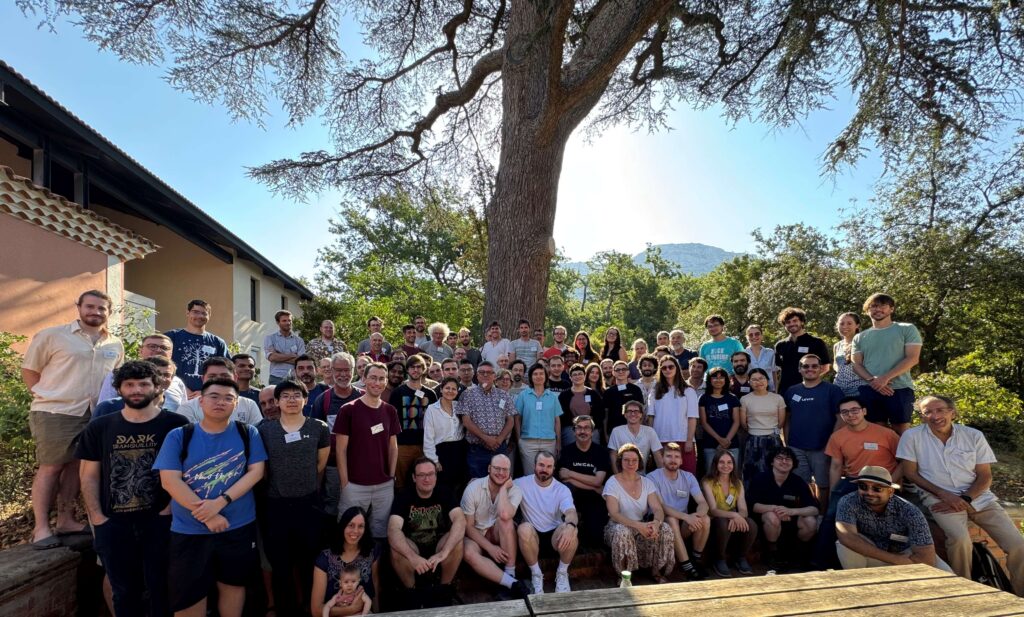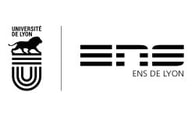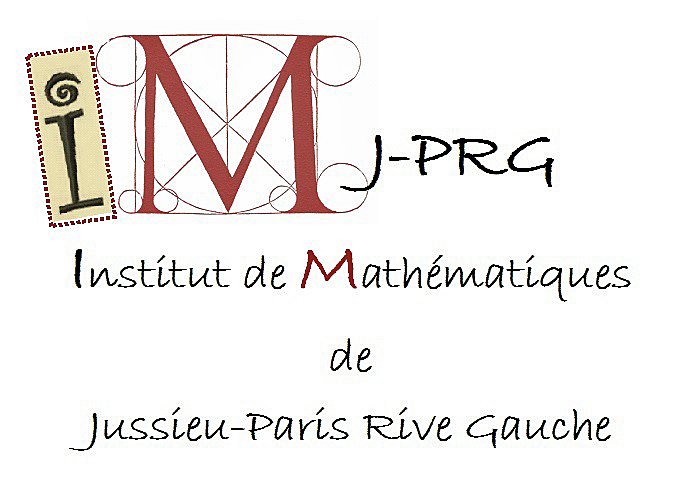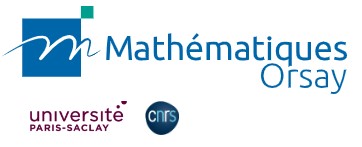CONFERENCE
Orbit equivalence and topological and measurable dynamics
Equivalence orbitale, dynamique topologique et mesurée
25 – 29 August, 2025
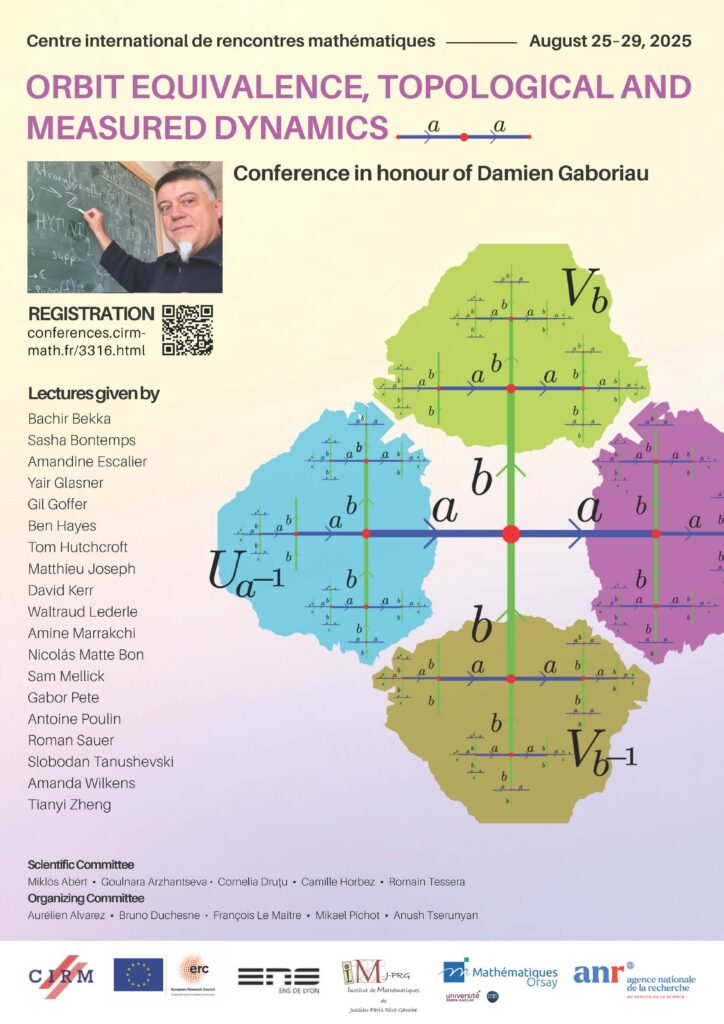
Scientific Committee
Comité scientifique
Miklos Abert (Central European University)
Goulnara N. Arzhantseva (University of Vienna)
Cornelia Drutu Badea (University of Oxford)
Camille Horbez (CNRS, Université Paris-Saclay)
Romain Tessera (CNRS, Université Paris Cité)
Organizing Committee
Comité d’organisation
Aurélien Alvarez (ENS-Lyon)
Bruno Duchesne (Université Paris Saclay)
Camille Horbez (Université Paris-Saclay)
François Le Maître (Université Bourgogne Europe)
Mikael Pichot (McGill University)
Anush Tserunyan (McGill University)
Orbit equivalence is a core concept in the understanding of group dynamics, be it in the topological, measured or Borel context. It can also make the wildest dreams of a group theorist come true, allowing one to put a free group inside any non amenable group.
This conference proposes to explore the many facets of orbit equivalence and its quantitative versions that have emerged recently, in interaction with operator algebras, entropy, percolation, invariant random subgroups, ℓ2 invariants, geometric group theory and Borel combinatorics.
We hope that this blend of topics will nurture further developements in the understanding of groups via their orbits, and more generally in topological and measurable dynamics. Besides, we will celebrate the sixtieth birthday of Damien Gaboriau, whose work has had a tremendous impact on this area.
SPEAKERS
Bachir Bekka (Université de Rennes 1) Representations of the canonical commutation relations for general rings
Sasha Bontemps (ENS Lyon) Subgroup mixing in Baumslag-Solitar groups
Amandine Escalier (Université Claude Bernard Lyon 1) Graph products and measure equivalence superrigidity
Yair Glasner (Ben Gurion University of the Negev) Invariant random orders on groups
Gil Goffer (University of California) Analysis of relations in groups
Ben Hayes (University of Virginia) Coamenability and cospectral radius for orbit equivalence relations
Tom Hutchcroft (California Institute of Technology) Percolation at the uniqueness threshold
Matthieu Joseph (Université Paris-Saclay) Factors of Bernoulli shifts for the infinite permutation group
David Kerr (University of Münster) Actions of free groups and stable rank one
Waltraud Lederle (Université Catholique de Louvain) Elementwise conservative actions and boomerang subgroups
Amine Marrakchi (ENS Lyon) Strongly ergodic equivalence relations and full factors
Nicolas Matte Bon (Université Lyon 1) Topological graphings, random walk entropy, and conformal dimension
Sam Mellick (Jagiellonian University) Hutchcroft-Pete Redux
Gabor Pete (Alfréd Rényi Institute of Mathematics) Quantitative indistinguishability and sparse clusters for FIID percolations
Roman Sauer (Karlsruhe Institute for Technology) Higher property property T and applications
Slobodan Tanusevski (Universidade Federal Fluminense) Standard Borel CW complexes and higher dimensional cost
Amanda Wilkens (Carnegie Mellon University) Poisson-Voronoi tessellations and fixed price in higher rank
Tianyi Zheng (University of California) Radon-Nikodym sampling limits


